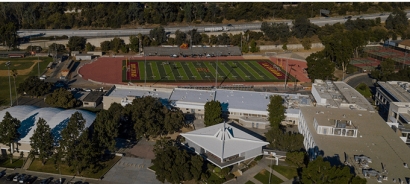
The school district will receive up to $200 a month in MCE bill credits at each project site, a $0.22 per kilowatt hour credit for energy discharged to the grid between 4p.m.-9p.m., and end-to-end project development through MCE's vetted contractor, MBL-Energy. Credits are provided to the school district in return for discharging batteries daily to help maintain grid reliability and lower costs when the grid is available. The battery will also help keep electricity on at the school sites during grid outages.
MCE's Energy Storage Program offers important facilities like Pittsburg Unified School District the ability to become a community resource keeping the lights on during power outages," said Shanelle Scales-Preston, City of Pittsburg Vice-Mayor, and MCE Board Vice Chair.
"The school district has been a shining example of what can be accomplished when we take advantage of holistic approaches to energy savings and sustainability. We hope others take note of the benefits of this strategy."
MBL-Energy, a competitively-awarded Trade Ally for MCE's Energy Storage Program, is providing engineering, procurement, and construction for the project, taking the school district’s energy storage project from start to finish. MBL will also provide operations and maintenance services after the project is completed to keep it running in optimal condition.
"The school district's decision to use MBL's SmartStorage technology will help the school district reduce energy costs and support the community with sustainable and reliable infrastructure," said Robert Laubach, CEO of MBL-Energy.
"This project is a testament to the leadership that has defined MCE as the first CCA in California. It is a fantastic privilege to partner with MCE and Pittsburg Unified School District to bring state of the art energy storage technology to the California grid."
This energy storage project is the latest demonstration of Pittsburg Unified School District's initiatives to reduce costs and their carbon footprint. The district has installed solar at all school sites and 22 electric vehicle charging stations. They have purchased six all-electric vehicles for student transportation and staff use, and two all-electric full-size buses. Their 1-acre bioswale absorbs water during heavy rains while generating renewable energy from ground-mounted solar panels and vertical wind turbines. The district is also active in MCE’s Strategic Energy Management Program which optimizes energy and building management systems, and has received over $29,000 in incentive payments and reduced energy use by 870 MWh to date, saving $245,000.
"Pittsburg Unified School District has been a pioneer in the solar energy space since 2010, installing solar panels for sustainable energy savings," said Hitesh Haria, Associate Superintendent of Business Services at Pittsburg Unified School District.
"We are now installing Battery Resiliency, that will store solar energy and will take our sustainable energy efforts into the next generation. The savings from the Battery Resiliency project will allow us to continue our efforts and re-invest in sustainable energy programs to continue expanding our focus on environmental stewardship."

